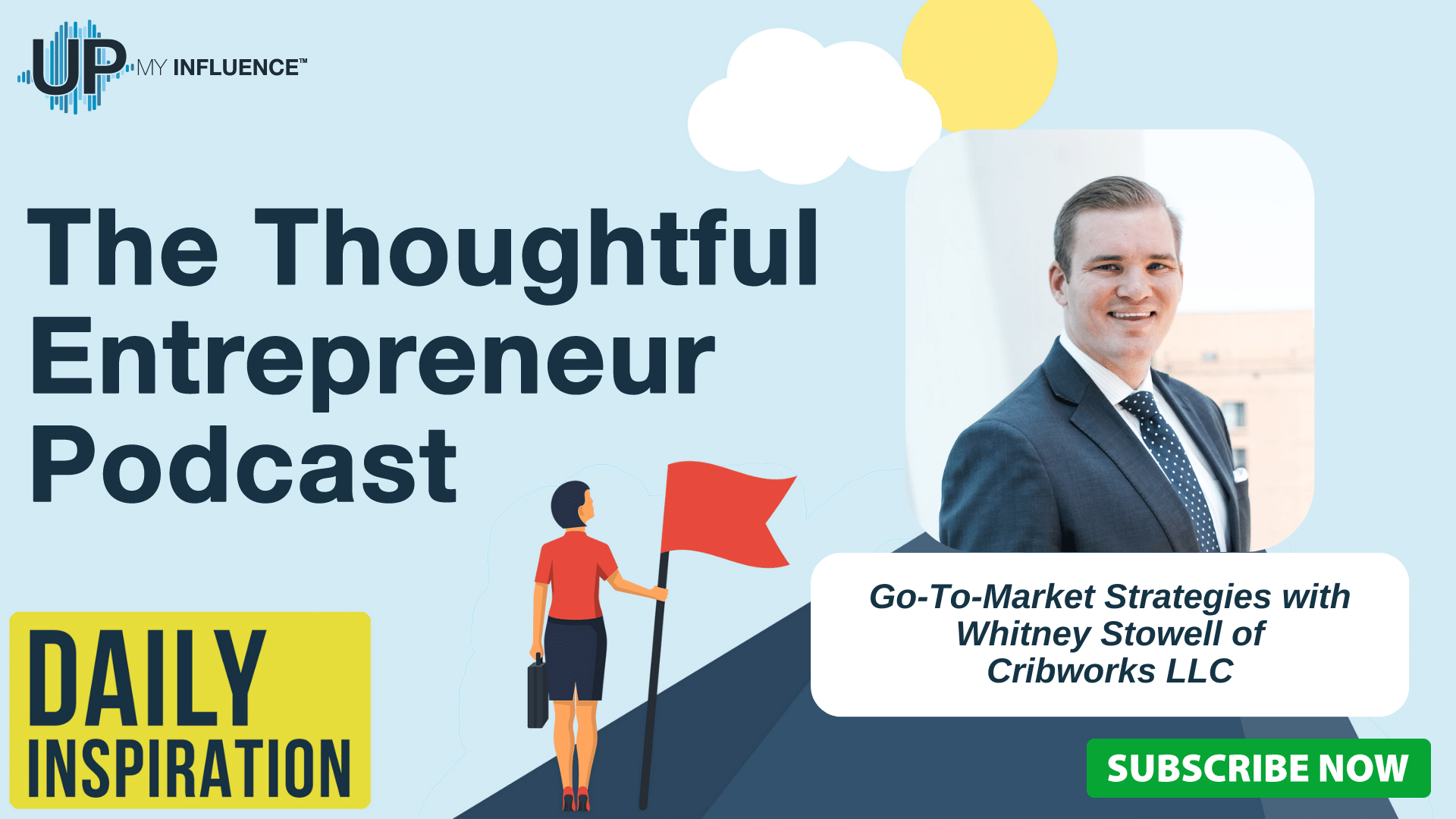THE THOUGHTFUL ENTREPRENEUR PODCAST
In this episode of the Thoughtful Entrepreneur, your host Josh Elledge speaks to the CEO & Founder of Cribworks, Whitney Stowell.

Whitney's expertise lies in helping companies build their sales pipelines and account management plans to position themselves for success. In our conversation, she shared invaluable insights every business owner should know.
Whitney's work involves identifying leaks in the sales pipeline and addressing why leads may not convert into demo meetings or potential proposals.
She emphasizes the importance of vetting opportunities and understanding the customer's needs and preferences, especially in larger enterprise-level deals.
Whitney also mentioned the importance of professional associations as a valuable source of warm leads and partnership opportunities. These associations provide a platform for networking and building relationships that can lead to potential business opportunities.
In terms of sales cadences, Whitney suggests considering whether there is a compelling event or reason for the customer to move forward with the opportunity. She emphasizes the importance of understanding the customer's motivations and needs to avoid spinning wheels on unproductive engagements.
Whitney advises against being pushy or solely focused on selling. Instead, she suggests leaning into the role of a trusted advisor and treating customers like friends. By genuinely advocating for their best interests, you can create the best possible outcomes for them.
Key Points from the Episode:
- Introduction of Whitney Stoll, CEO and Founder of Carriageworks
- Focus on building sales pipelines and account management plans
- Identifying leaks in the sales pipeline and addressing conversion issues
- Importance of vetting opportunities and understanding customer needs
- Role of emotions and relationships in sales, particularly in government contracting
- Importance of differentiation and addressing customer needs
- Importance of asking great questions and active listening
- Consideration of compelling events and customer motivations in sales cadences
- Importance of staying engaged with customers and providing relevant content
About Whitney Stowell:
Whitney Stowell is the CEO and Founder of Cribworks, a Washington, DC-based sales and business development consulting firm specializing in data-driven sales growth services.
With over 15 years of industry experience spanning commercial, startup, and government contracting, Whitney has held diverse roles in marketing, business development, corporate strategy, and government affairs.
Whitney's impressive career includes contributions to notable organizations such as Signify (formerly Philips Lighting), Major League Rugby's Old Glory DC franchise, Royal Philips, Elbit Systems of America, Chenega Corporation, and the United States Senate's Homeland Security and Governmental Affairs committee.
Beyond his professional endeavors, Whitney actively engages in community service. He serves on the Board of Directors for the Society of American Military Engineers (SAME) DC Post, addressing national security infrastructure challenges.
In the local rugby community, Whitney has been President of the Washington Irish Rugby Football Club and supports youth rugby clubs.
Additionally, he participates in various organizations in Washington DC, including the Smart Cities Group, Association for United States Army (AUSA), and USA Rugby.
Whitney holds a B.A. from Bates College in Maine and certifications in business development and capture management from Shipley University.
About Cribworks:
Cribworks is a dynamic startup consulting firm that guides businesses through the entire business cycle. As a client-centric and results-oriented business development consulting firm, Cribworks offers affordable, comprehensive services to meet the diverse needs of its clients.
Specializing in sales and business development consulting, the firm collaborates exclusively with clients to enhance their potential for success.
From tactical short-term engagements to strategic long-term positioning, Cribworks delivers tangible, actionable results that propel businesses in the right direction.
The firm provides a full spectrum of business development consulting services to local, state, national, and multinational clients, prioritizing delivering tailored solutions.
Cribworks emphasizes direct collaboration with clients on initiatives such as developing new and existing business opportunities, competitive intelligence, marketing strategies, and sound financial decision-making.
The firm is committed to fostering enduring partnerships, ensuring client businesses thrive and achieve their long-term goals.
With a personalized approach that recognizes each business's unique challenges and advantages, Cribworks stands steadfastly alongside clients today, tomorrow, and into the future.
Apply to be a Guest on The Thoughtful Entrepreneur:
https://go.upmyinfluence.com/podcast-guest
Links Mentioned in this Episode:
Want to learn more? Check out Cribworks website at
Check out Cribworks on LinkedIn at
https://www.linkedin.com/company/cribworks/
Check out Cribworks on Twitter at
https://twitter.com/whitneystowell
Check out Whitney Stowell on LinkedIn at
https://www.linkedin.com/in/whitney-stowell/
Check out Whitney Stowell on Facebook at
https://www.facebook.com/whitney.stowell.5/
Check out Whitney Stowell on Instagram at
https://www.instagram.com/whitney_stowell/?hl=en
Check out Whitney Stowell on Twitter at
https://twitter.com/whitneystowell
More from UpMyInfluence:
We are actively booking guests for our The Thoughtful Entrepreneur. Schedule HERE.
Are you a 6-figure consultant? I’ve got high-level intros for you. Learn more here.
What is your #1 Lead Generation BLOCKER? Take my free quiz here.
Want to learn more about all the podcasts managed by UpMyInfluence? Opt in here.

